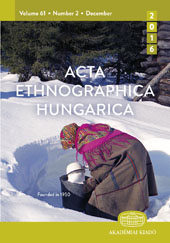Polysémie, homonymie et homophonie dans les proverbes détournés — avec des exemples Français, Hongrois, Anglais, Allemands et Russes
Polysemy, homonymy and homophony in the hijacked proverbs - with examples French, Hungarian, English, German and Russian
Author(s): Péter Barta, Anna T. Litovkina, Hrisztalina Hrisztova-Gotthardt, Katalin VarghaSubject(s): Lexis, Semantics, Comparative Linguistics, Sociolinguistics
Published by: Akadémiai Kiadó
Keywords: proverb; anti-proverb; polysemy; homonymy; homophony; French; Hungarian; English; German; Russian;
Summary/Abstract: On the basis of French, Hungarian, English, German and Russian corpora of anti-proverbs (deliberate proverb innovations, also known as alterations, mutations, parodies, transformations, variations, wisecracks, and fractured proverbs), we examine word play based on polysemy, homonymy, and homophony. After a survey of the proverbs most frequently used for these types of alteration, this study investigates anti-proverbs linked to the theme of sexuality. Finally, we explore the use of proper nouns in proverb transformations based on polysemy, homonymy, and homophony.
Journal: Acta Ethnographica Hungarica
- Issue Year: 54/2009
- Issue No: 1
- Page Range: 63-75
- Page Count: 13
- Language: French
- Content File-PDF

